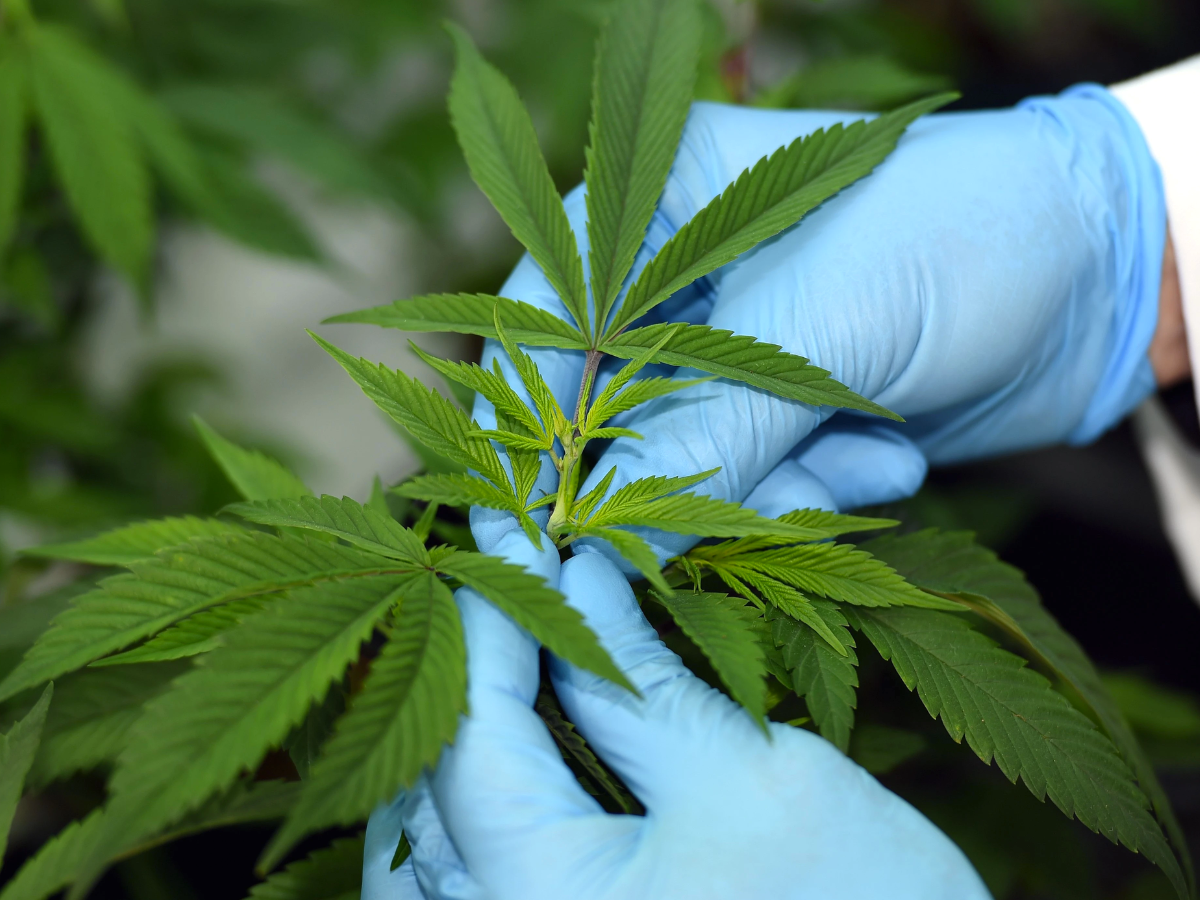Distilled Post spoke with Julie (not her real name) who uses prescribed cannabinoids to manage the chronic pain and muscle stiffness caused by Multiple Sclerosis (MS). If Julie lived in California, she could easily walk into a dispensary and buy what she needed. Here in the UK, however, obtaining medical cannabis is far from straightforward.
She has been able to access a cannabis-based medication called Sativex which contains an equal mix of tetrahydrocannabinol (THC) and cannabidiol (CBD). Sativex is the only cannabis-based drug with a UK licence to treat the muscle stiffness and spasms (spasticity) caused by MS. Julie’s experience of the medication has been extremely positive, but accessing it has been a nightmare.
Approved but denied
In 2019, NICE recommended that Sativex should be available to people in England with ‘moderate’ to ‘severe’ spasticity who have not responded to other treatments. Despite this, it is still not easy to get hold of and access varies across the country. Patients find themselves playing a postcode lottery with Sativex only funded in 49 out of 106 Clinical Commissioning Groups across the country.
Where Julie lives, Sativex is not available for the usual prescription charge of £9.35. If she wants to get Sativex from her doctor, she has to pay around £170 per prescription.
‘£2000 a year is a lot to expect disabled people to pay, especially if other treatments like hydrotherapy aren’t covered by your local NHS trust. There shouldn’t be such a huge cost associated with living without pain – where you live shouldn’t determine whether you’re deserving of pain relief, care should be provided based on need.
Our needs didn’t change during covid, but with things like hydrotherapy being cancelled our options were massively reduced. Accessing Sativex could have made a world of difference, but we’re faced with all these barriers.’
Julie feels that general attitudes to cannabis-based treatments are a large contributor to the lack of access to Sativex: ‘there is systemic discrimination against the use of cannabinoids, and there is a huge reluctance within our medical culture to look at it as more than just a recreational drug.’ On top of this, she noted that limited access means that GPs have limited personal experience of how the drug affects their patients – and may therefore remain hesitant to prescribe it.
Julie noted that a lack of access to medical cannabis does not mean that people will not use it, it simply means they may seek it from unregulated sources.
As someone who has seen the benefits of cannabinoids firsthand, Julie is an advocate for legalisation, regulation, taxation, and education around cannabis in the UK. She identified that there are huge potential financial possibilities for companies that build a legitimate business in the area, as well as major health benefits of a regulated supply that people could trust.
Creating a legitimate industry in the UK
Progress is being made here in the UK – one of Britain’s first licensed medical cannabis labs recently offered a tour to the Guardian, and private health clinics are beginning to offer inhaled cannabis treatments – but it’s slow.
LVL Health is a leading medical cannabis clinic based in London for people living with chronic pain, helping them access appropriate cannabis-based treatments to supplement their primary treatments. Andrea Wright, a 39-year-old from Bristol who spoke to the Guardian, began inhaling medical cannabis at LVL Health to help with her psoriatic arthritis and fibromyalgia. She reported sleeping properly for the first time in years, being able to work longer hours and actually go into her office, and a huge improvement in her pain levels.
While not everyone will respond so positively to cannabis-based treatments, a recent study found that ‘more than 60% of the patients with MS who started add-on treatment with cannabinoid oromucosal spray reported a clinically relevant symptomatic effect and continued treatment after 12 weeks.’
Certain US states have proven that legalising cannabis is not only possible but profitable, yet other states and countries are slow to follow suit. Big Pharma is potentially reluctant to step into the arena because it could also be so lucrative to smaller players:
‘The industry group Prohibition Partners estimates that about €354m worth of unlicensed medical cannabis will be sold in Europe this year, and projects this will grow to €2.3bn (£2bn) by 2026’
Despite the clear health benefits (and the financial opportunities the industry presents), there is a lot of stigma to dismantle and a lot of careful regulation to put in place before cannabis can be widely used here in the UK.
From criminalisation to legalisation
Changing regulations around drugs is an incredibly complex process and the journey to legalisation brings numerous pitfalls surrounding previous convictions.
While people in states such as California are now free to buy cannabis on the high street, thousands still languish behind bars for doing precisely that. On top of this, those who served cannabis convictions decades ago still have a felony on their records, resulting in lasting impacts on seeking employment, housing, loans, or any other instance requiring background checks.
While there are expungement programmes in place, many ‘individuals affected by the infamous War on Drugs lack the knowledge or financial resources to seek relief through these’ programmes. With Black Americans also 3.7 times more likely to be arrested for possession, it is clear that the benefits of legalisation are not reaching everyone equally.
The Last Prisoner Project, based in the US, is a non-profit organisation dedicated to cannabis criminal justice reform. What would have landed people in jail 10 years ago is now a lucrative and legitimate industry in parts of the country, but the justice system is yet to catch up. Despite cannabis being legalised in 18 states, many people – an estimated 40,000 across the US – are still in prison for cannabis-related offences that are no longer illegal.
Amending laws now does little to change the lasting impact of both a criminal record and time spent behind bars. ‘The wider legacy of mass criminalisation is etched into millions of criminal records, creating an enduring stigma, perpetuating the trauma of unjust criminalisation by drastically reducing life opportunities.’ Cannabis law enforcement has disproportionately targeted marginalised communities for decades, meaning that this lasting stigma weighs the heaviest on their shoulders.
The LPP believes that ‘anyone profiting from or freely engaging in the legal cannabis industry has a moral imperative to work towards restorative justice’ for those who remain behind bars. The LLP works to create pathways to employment within the legal cannabis industry for those who have been negatively impacted by criminalisation. They intend to continue their work until every last prisoner has been freed and supported to rebuild their lives.
The journey from criminalisation to legalisation is a long one, but the early stages of change we are seeing here in the UK remain promising.
Recommended for you

Antidepressant Prescribing at Six-Year High
More people are taking antidepressants than ever. Is this a dark sign of the times or an indication that mental health stigma is changing?

Can AI be Used to Determine Cancer Recurrence?
When cancer patients go into remission, they often worry about it coming back. AI can now help identify those at risk of cancer recurrence.

Pegasus – Still a Threat to the UK?
The notorious Pegasus spyware has been misused to exploit vulnerabilities in devices, even those kept within the walls of Number 10.
Trending

Drug Decriminalisation: Could the UK Follow Portugal?
Portugal’s drug decriminalisation has reduced drug deaths and made people feel safe seeking support. Would the UK ever follow suit?

Calling All Unvaccinated UK Adults
With Covid cases rising, the NHS is urging the 3 million UK adults who remain unvaccinated to come forward.





